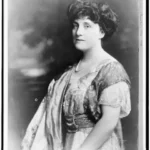 | |
God’s Fool | |
| Author | Mary Roberts Rinehart |
|---|---|
| Published |
1912
|
| Language | English |
| Nationality | American |
| Genre | Detective Fiction, Mystery |
1912 Short Story
God’s Fool
God’s Fool is an English Detective Fiction, Mystery short story by American writer Mary Roberts Rinehart. It was first published in 1912.
God’s Fool
by Mary Roberts Rinehart
I
The great God endows His children variously. To some He gives intellect–and they move the earth. To some He allots heart–and the beating pulse of humanity is theirs. But to some He gives only a soul, without intelligence–and these, who never grow up, but remain always His children, are God’s fools, kindly, elemental, simple, as if from His palette the Artist of all had taken one colour instead of many.
The Dummy was God’s fool. Having only a soul and no intelligence, he lived the life of the soul. Through his faded, childish old blue eyes he looked out on a world that hurried past him with, at best, a friendly touch on his shoulder. No man shook his hand in comradeship. No woman save the little old mother had ever caressed him. He lived alone in a world of his own fashioning, peopled by moving, noiseless figures and filled with dreams–noiseless because the Dummy had ears that heard not and lips that smiled at a kindness, but that did not speak.
In this world of his there was no uncharitableness–no sin. There was a God–why should he not know his Father?–there were brasses to clean and three meals a day; and there was chapel on Sunday, where one held a book–the Dummy held his upside down–and felt the vibration of the organ, and proudly watched the afternoon sunlight smiling on the polished metal of the chandelier and choir rail.
* * * * *
The Probationer sat turning the bandage machine and watching the Dummy, who was polishing the brass plates on the beds. The plates said: “Endowed in perpetuity”–by various leading citizens, to whom God had given His best gifts, both heart and brain.
“How old do you suppose he is?” she asked, dropping her voice.
The Senior Nurse was writing fresh labels for the medicine closet, and for “tincture of myrrh” she wrote absently “tincture of mirth,” and had to tear it up.
“He can’t hear you,” she said rather shortly. “How old? Oh, I don’t know. About a hundred, I should think.”
This was, of course, because of his soul, which was all he had, and which, having existed from the beginning, was incredibly old. The little dead mother could have told them that he was less than thirty.
The Probationer sat winding bandages. Now and then they went crooked and had to be done again. She was very tired. The creaking of the bandage machine made her nervous–that and a sort of disillusionment; for was this her great mission, this sitting in a silent, sunny ward, where the double row of beds held only querulous convalescent women? How close was she to life who had come to soothe the suffering and close the eyes of the dying; who had imagined that her instruments of healing were a thermometer and a prayer-book; and who found herself fighting the good fight with a bandage machine and, even worse, a scrubbing brush and a finetooth comb?
The Senior Nurse, having finished the M’s, glanced up and surprised a tear on the Probationer’s round young cheek. She was wise, having trained many probationers.
“Go to first supper, please,” she said. First supper is the Senior’s prerogative; but it is given occasionally to juniors and probationers as a mark of approval, or when the Senior is not hungry, or when a probationer reaches the breaking point, which is just before she gets her uniform.
The Probationer smiled and brightened. After all, she must be doing fairly well; and if she were not in the battle she was of it. Glimpses she had of the battle–stretchers going up and down in the slow elevator; sheeted figures on their way to the operating room; the clang of the ambulance bell in the courtyard; the occasional cry of a new life ushered in; the impressive silence of an old life going out. She surveyed the bandages on the bed.
“I’ll put away the bandages first,” she said. “That’s what you said, I think–never to leave the emergency bed with anything on it?”
“Right-oh!” said the Senior.
“Though nothing ever happens back here–does it?’
“It’s about our turn; I’m looking for a burned case.” The Probationer, putting the bandages into a basket, turned and stared.
“We have had two in to-day in the house,” the Senior went on, starting on the N’s and making the capital carefully. “There will be a third, of course; and we may get it. Cases always seem to run in threes. While you’re straightening the bed I suppose I might as well go to supper after all.”
So it was the Probationer and the Dummy who received the new case, while the Senior ate cold salmon and fried potatoes with other seniors, and inveighed against lectures on Saturday evening and other things that seniors object to, such as things lost in the wash, and milk in the coffee instead of cream, and women from the Avenue who drank carbolic acid and kept the ambulance busy.
The Probationer was from the country and she had never heard of the Avenue. And the Dummy, who walked there daily with the superintendent’s dog, knew nothing of its wickedness. In his soul, where there was nothing but kindness, there was even a feeling of tenderness for the Avenue. Once the dog had been bitten by a terrier from one of the houses, and a girl had carried him in and washed the wounds and bound them up. Thereafter the Dummy had watched for her and bowed when he saw her. When he did not see her he bowed to the house.
The Dummy finished the brass plates and, gathering up his rags and polish, shuffled to the door. His walk was a patient shamble, but he covered incredible distances. When he reached the emergency bed he stopped and pointed to it. The Probationer looked startled.
“He’s tellin’ you to get it ready,” shrilled Irish Delia, sitting up in the next bed. “He did that before you was brought in,” she called to Old Maggie across the ward. “Goodness knows how he finds out–but he knows. Get the spread off the bed, miss. There’s something coming.”
* * * * *
The Probationer had come from the country and naturally knew nothing of the Avenue. Sometimes on her off duty she took short walks there, wondering if the passers-by who stared at her knew that she was a part of the great building that loomed over the district, happily ignorant of the real significance of their glances. Once a girl, sitting behind bowed shutters, had leaned out and smiled at her.
“Hot to-day, isn’t it?” she said.
The Probationer stopped politely.
“It’s fearful! Is there any place near where I can get some soda water?”
The girl in the window stared.
“There’s a drug store two squares down,” she said. “And say, if I were you—-“
“Yes?”
“Oh, nothing!” said the girl in the window, and quite unexpectedly slammed the shutters.
The Probationer had puzzled over it quite a lot. More than once she walked by the house, but she did not see the smiling girl–only, curiously enough, one day she saw the Dummy passing the house and watched him bow and take off his old cap, though there was no one in sight.
Sooner or later the Avenue girls get to the hospital. Sometimes it is because they cannot sleep, and lie and think things over–and there is no way out; and God hates them–though, of course, there is that story about Jesus and the Avenue woman. And what is the use of going home and being asked questions that cannot be answered? So they try to put an end to things generally–and end up in the emergency bed, terribly frightened, because it has occurred to them that if they do not dare to meet the home folks how are they going to meet the Almighty?
Or sometimes it is jealousy. Even an Avenue woman must love some one; and, because she’s an elemental creature, if the object of her affections turns elsewhere she’s rather apt to use a knife or a razor. In that case it is the rival who ends up on the emergency bed.
Or the life gets her, as it does sooner or later, and she comes in with typhoid or a cough, or other things, and lies alone, day after day, without visitors or inquiries, making no effort to get better, because–well, why should she?
And so the Dummy’s Avenue Girl met her turn and rode down the street in a clanging ambulance, and was taken up in the elevator and along a grey hall to where the emergency bed was waiting; and the Probationer, very cold as to hands and feet, was sending mental appeals to the Senior to come–and come quickly. The ward got up on elbows and watched. Also it told the Probationer what to do.
“Hot-water bottles and screens,” it said variously. “Take her temperature. Don’t be frightened! There’ll be a doctor in a minute.”
The girl lay on the bed with her eyes shut. It was Irish Delia who saw the Dummy and raised a cry.
“Look at the Dummy!” she said. “He’s crying.”
The Dummy’s world had always been a small one. There was the superintendent, who gave him his old clothes; and there was the engineer, who brought him tobacco; and there were the ambulance horses, who talked to him now and then without speech. And, of course, there was his Father.
Fringing this small inner circle of his heart was a kaleidoscope of changing faces, nurses, internes, patients, visitors–a wall of life that kept inviolate his inner shrine. And in the holiest place, where had dwelt only his Father, and not even the superintendent, the Dummy had recently placed the Avenue Girl. She was his saint, though he knew nothing of saints. Who can know why he chose her? A queer trick of the soul perhaps–or was it super-wisdom?–to choose her from among many saintly women and so enshrine her.
Or perhaps—- Down in the chapel, in a great glass window, the young John knelt among lilies and prayed. When, at service on Sundays, the sunlight came through on to the Dummy’s polished choir rail and candles, the young John had the face of a girl, with short curling hair, very yellow for the colour scheme. The Avenue Girl had hair like that and was rather like him in other ways.
And here she was where all the others had come, and where countless others would come sooner or later. She was not unconscious and at Delia’s cry she opened her eyes. The Probationer was off filling water bottles, and only the Dummy, stricken, round-shouldered, unlovely, stood beside her.
“Rotten luck, old top!” she said faintly.
To the Dummy it was a benediction. She could open her eyes. The miracle of speech was still hers.
“Cigarette!” explained the Avenue Girl, seeing his eyes still on her. “Must have gone to sleep with it and dropped it. I’m–all in!”
“Don’t you talk like that,” said Irish Delia, bending over from the next bed. “You’ll get well a’ right–unless you inhaled. Y’ought to ‘a’ kept your mouth shut.”
Across the ward Old Maggie had donned her ragged slippers and a blue calico wrapper and shuffled to the foot of the emergency bed. Old Maggie was of that vague neighbourhood back of the Avenue, where squalor and poverty rubbed elbows with vice, and scorned it.
“Humph!” she said, without troubling to lower her voice. “I’ve seen her often. I done her washing once. She’s as bad as they make ’em.”
“You shut your mouth!” Irish Delia rose to the defence. “She’s in trouble now and what she was don’t matter. You go back to bed or I’ll tell the Head Nurse on you. Look out! The Dummy—-“
The Dummy was advancing on Old Maggie with threatening eyes. As the woman recoiled he caught her arm in one of his ugly, misshapen hands and jerked her away from the bed. Old Maggie reeled–almost fell.
“You all seen that!” she appealed to the ward. “I haven’t even spoke to him and he attacked me! I’ll go to the superintendent about it. I’ll—-“
The Probationer hurried in. Her young cheeks were flushed with excitement and anxiety; her arms were full of jugs, towels, bandages–anything she could imagine as essential. She found the Dummy on his knees polishing a bed plate, and the ward in order–only Old Maggie was grumbling and making her way back to bed; and Irish Delia was sitting up, with her eyes shining–for had not the Dummy, who could not hear, known what Old Maggie had said about the new girl? Had she not said that he knew many things that were hidden, though God knows how he knew them?
The next hour saw the Avenue Girl through a great deal. Her burns were dressed by an interne and she was moved back to a bed at the end of the ward. The Probationer sat beside her, having refused supper. The Dummy was gone–the Senior Nurse had shooed him off as one shoos a chicken.
“Get out of here! You’re always under my feet,” she had said–not unkindly–and pointed to the door.
The Dummy had stood, with his faded old-young eyes on her, and had not moved. The Senior, who had the ward supper to serve and beds to brush out and backs to rub, not to mention having to make up the emergency bed and clear away the dressings–the Senior tried diplomacy and offered him an orange from her own corner of the medicine closet. He shook his head.
“I guess he wants to know whether that girl from the Avenue’s going to get well,” said Irish Delia. “He seems to know her.”
There was a titter through the ward at this. Old Maggie’s gossiping tongue had been busy during the hour. From pity the ward had veered to contempt.
“Humph!” said the Senior, and put the orange back. “Why, yes; I guess she’ll get well. But how in Heaven’s name am I to let him know?”
She was a resourceful person, however, and by pointing to the Avenue Girl and then nodding reassuringly she got her message of cheer over the gulf of his understanding. In return the Dummy told her by gestures how he knew the girl and how she had bound up the leg of the superintendent’s dog. The Senior was a literal person and not occult; and she was very busy. When the Dummy stooped to indicate the dog, a foot or so from the ground, she seized that as the key of the situation.
“He’s trying to let me know that he knew her when she was a baby,” she observed generally. “All right, if that’s the case. Come in and see her when you want to. And now get out, for goodness’ sake!”
The Dummy, with his patient shamble, made his way out of the ward and stored his polishes for the night in the corner of a scrub-closet. Then, ignoring supper, he went down the stairs, flight after flight, to the chapel. The late autumn sun had set behind the buildings across the courtyard and the lower part of the silent room was in shadow; but the afterglow came palely through the stained-glass window, with the young John and tall stalks of white lilies, and “To the Memory of My Daughter Elizabeth” beneath.
It was only a coincidence–and not even that to the Dummy–but Elizabeth had been the Avenue Girl’s name not so long ago.
The Dummy sat down near the door very humbly and gazed at the memorial window.
II
Time may be measured in different ways–by joys; by throbs of pain; by instants; by centuries. In a hospital it is marked by night nurses and day nurses; by rounds of the Staff; by visiting days; by medicines and temperatures and milk diets and fever baths; by the distant singing in the chapel on Sundays; by the shift of the morning sun on the east beds to the evening sun on the beds along the west windows.
The Avenue Girl lay alone most of the time. The friendly offices of the ward were not for her. Private curiosity and possible kindliness were over-shadowed by a general arrogance of goodness. The ward flung its virtue at her like a weapon and she raised no defence. In the first days things were not so bad. She lay in shock for a time, and there were not wanting hands during the bad hours to lift a cup of water to her lips; but after that came the tedious time when death no longer hovered overhead and life was there for the asking.
The curious thing was that the Avenue Girl did not ask. She lay for hours without moving, with eyes that seemed tired with looking into the dregs of life. The Probationer was in despair.
“She could get better if she would,” she said to the interne one day. The Senior was off duty and they had done the dressing together. “She just won’t try.”
“Perhaps she thinks it isn’t worth while,” replied the interne, who was drying his hands carefully while the Probationer waited for the towel.
She was a very pretty Probationer.
“She hasn’t much to look forward to, you know.”
The Probationer was not accustomed to discussing certain things with young men, but she had the Avenue Girl on her mind.
“She has a home–she admits it.” She coloured bravely. “Why–why cannot she go back to it, even now?”
The interne poured a little rosewater and glycerine into the palm of one hand and gave the Probationer the bottle. If his fingers touched hers, she never knew it.
“Perhaps they’d not want her after–well, they’d never feel the same, likely. They’d probably prefer to think of her as dead and let it go at that. There–there doesn’t seem to be any way back, you know.”
He was exceedingly self-conscious.
“Then life is very cruel,” said the Probationer with rather shaky lips.
And going back to the Avenue Girl’s bed she filled her cup with ice and straightened her pillows. It was her only way of showing defiance to a world that mutilated its children and turned them out to die. The interne watched her as she worked. It rather galled him to see her touching this patient. He had no particular sympathy for the Avenue Girl. He was a man, and ruthless, as men are apt to be in such things.
The Avenue Girl had no visitors. She had had one or two at first–pretty girls with tired eyes and apologetic glances; a negress who got by the hall porter with a box of cigarettes, which the Senior promptly confiscated; and–the Dummy. Morning and evening came the Dummy and stood by her bed and worshipped. Morning and evening he brought tribute–a flower from the masses that came in daily; an orange, got by no one knows what trickery from the kitchen; a leadpencil; a box of cheap candies. At first the girl had been embarrassed by his visits. Later, as the unfriendliness of the ward grew more pronounced, she greeted him with a faint smile. The first time she smiled he grew quite pale and shuffled out. Late that night they found him sitting in the chapel looking at the window, which was only a blur.
For certain small services in the ward the Senior depended on the convalescents–filling drinking cups; passing milk at eleven and three; keeping the white bedspreads in geometrical order. But the Avenue Girl was taboo. The boycott had been instituted by Old Maggie. The rampant respectability of the ward even went so far as to refuse to wash her in those early morning hours when the night nurse, flying about with her cap on one ear, was carrying tin basins about like a blue-and-white cyclone. The Dummy knew nothing of the washing; the early morning was the time when he polished the brass doorplate which said: Hospital and Free Dispensary. But he knew about the drinking cup and after a time that became his self-appointed task.
On Sundays he put on his one white shirt and a frayed collar two sizes too large and went to chapel. At those times he sat with his prayer book upside down and watched the Probationer who cared for his lady and who had no cap to hide her shining hair, and the interne, who was glad there was no cap because of the hair. God’s fool he was, indeed, for he liked to look in the interne’s eyes, and did not know an interne cannot marry for years and years, and that a probationer must not upset discipline by being engaged. God’s fool, indeed, who could see into the hearts of men, but not into their thoughts or their lives; and who, seeing only thus, on two dimensions of life and not the third, found the Avenue Girl holy and worthy of all worship!
* * * * *
The Probationer worried a great deal.
“It must hurt her so!” she said to the Senior. “Did you see them call that baby away on visiting day for fear she would touch it?”
“None are so good as the untempted,” explained the Senior, who had been beautiful and was now placid and full of good works. “You cannot remake the world, child. Bodies are our business here–not souls.” But the next moment she called Old Maggie to her.
“I’ve been pretty patient, Maggie,” she said. “You know what I mean. You’re the ringleader. Now things are going to change, or–you’ll go back on codliver oil to-night.”
“Yes’m,” said Old Maggie meekly, with hate in her heart. She loathed the codliver oil.
“Go back and straighten her bed!” commanded the Senior sternly.
“Now?”
“Now!”
“It hurts my back to stoop over,” whined Old Maggie, with the ward watching. “The doctor said that I—-“
The Senior made a move for the medicine closet and the bottles labelled C.
“I’m going,” whimpered Old Maggie. “Can’t you give a body time?”
And she went down to defeat, with the laughter of the ward in her ears–down to defeat, for the Avenue Girl would have none of her.
“You get out of here!” she said fiercely as Old Maggie set to work at the draw sheet. “Get out quick–or I’ll throw this cup in your face!”
The Senior was watching. Old Maggie put on an air of benevolence and called the Avenue Girl an unlovely name under her breath while she smoothed her pillow. She did not get the cup, but the water out of it, in her hard old face, and matters were as they had been.
The Girl did not improve as she should. The interne did the dressing day after day, while the Probationer helped him–the Senior disliked burned cases–and talked of skin grafting if a new powder he had discovered did no good. Internes are always trying out new things, looking for the great discovery.
The powder did no good. The day came when, the dressing over and the white coverings drawn up smoothly again over her slender body, the Avenue Girl voiced the question that her eyes had asked each time.
“Am I going to lie in this hole all my life?” she demanded.
The interne considered.
“It isn’t healing–not very fast anyhow,” he said. “If we could get a little skin to graft on you’d be all right in a jiffy. Can’t you get some friends to come in? It isn’t painful and it’s over in a minute.”
“Friends? Where would I get friends of that sort?”
“Well, relatives then–some of your own people?”
The Avenue Girl shut her eyes as she did when the dressing hurt her.
“None that I’d care to see,” she said. And the Probationer knew she lied. The interne shrugged his shoulders.
“If you think of any let me know. We’ll get them here,” he said briskly, and turned to see the Probationer rolling up her sleeve.
“Please!” she said, and held out a bare white arm. The interne stared at it stupefied. It was very lovely.
“I am not at all afraid,” urged the Probationer, “and my blood is good. It would grow–I know it would.”
The interne had hard work not to stoop and kiss the blue veins that rose to the surface in the inner curve of her elbow. The dressing screens were up and the three were quite alone. To keep his voice steady he became stern.
“Put your sleeve down and don’t be a foolish girl!” he, commanded. “Put your sleeve down!” His eyes said: “You wonder! You beauty! You brave little girl!”
Because the Probationer seemed to take her responsibilities rather to heart, however, and because, when he should have been thinking of other things, such as calling up the staff and making reports, he kept seeing that white arm and the resolute face above it, the interne worked out a plan.
“I’ve fixed it, I think,” he said, meeting her in a hallway where he had no business to be, and trying to look as if he had not known she was coming. “Father Feeny was in this morning and I tackled him. He’s got a lot of students–fellows studying for the priesthood–and he says any daughter of the church shall have skin if he has to flay ’em alive.”
“But–is she a daughter of the church?” asked the Probationer. “And even if she were, under the circumstances—-“
“What circumstances?” demanded the interne. “Here’s a poor girl burned and suffering. The father is not going to ask whether she’s of the anointed.”
The Probationer was not sure. She liked doing things in the open and with nothing to happen later to make one uncomfortable; but she spoke to the Senior and the Senior was willing. Her chief trouble, after all, was with the Avenue Girl herself.
“I don’t want to get well,” she said wearily when the thing was put up to her. “What’s the use? I’d just go back to the same old thing; and when it got too strong for me I’d end up here again or in the morgue.”
“Tell me where your people live, then, and let me send for them.”
“Why? To have them read in my face what I’ve been, and go back home to die of shame?”
The Probationer looked at the Avenue Girl’s face.
“There–there is nothing in your face to hurt them,” she said, flushing–because there were some things the Probationer had never discussed, even with herself. “You–look sad. Honestly, that’s all.”
The Avenue Girl held up her thin right hand. The forefinger was still yellow from cigarettes.
“What about that?” she sneered.
“If I bleach it will you let me send for your people?”
“I’ll–perhaps,” was the most the Probationer could get.
Many people would have been discouraged. Even the Senior was a bit cynical. It took a Probationer still heartsick for home to read in the Avenue Girl’s eyes the terrible longing for the things she had given up–for home and home folks; for a clean slate again. The Probationer bleached and scrubbed the finger, and gradually a little of her hopeful spirit touched the other girl.
“What day is it?” the Avenue Girl asked once.
“Friday.”
“That’s baking day at home. We bake in an out-oven. Did you ever smell bread as it comes from an out-oven?” Or: “That’s a pretty shade of blue you nurses wear. It would be nice for working in the dairy, wouldn’t it?”
“Fine!” said the Probationer, and scrubbed away to hide the triumph in her eyes.
III
That was the day the Dummy stole the parrot. The parrot belonged to the Girl; but how did he know it? So many things he should have known the Dummy never learned; so many things he knew that he seemed never to have learned! He did not know, for instance, of Father Feeny and the Holy Name students; but he knew of the Avenue Girl’s loneliness and heartache, and of the cabal against her. It is one of the black marks on record against him that he refused to polish the plate on Old Maggie’s bed, and that he shook his fist at her more than once when the Senior was out of the ward.
And he knew of the parrot. That day, then, a short, stout woman with a hard face appeared in the superintendent’s office and demanded a parrot.
“Parrot?” said the superintendent blandly.
“Parrot! That crazy man you keep here walked into my house to-day and stole a parrot–and I want it.”
“The Dummy! But what on earth—-“
“It was my parrot,” said the woman. “It belonged to one of my boarders. She’s a burned case up in one of the wards–and she owed me money. I took it for a debt. You call that man and let him look me in the eye while I say parrot to him.”
“He cannot speak or hear.”
“You call him. He’ll understand me!”
They found the Dummy coming stealthily down from the top of the stable and haled him into the office. He was very calm–quite impassive. Apparently he had never seen the woman before; as she raged he smiled cheerfully and shook his head.
“As a matter of fact,” said the superintendent, “I don’t believe he ever saw the bird; but if he has it we shall find it out and you’ll get it again.”
They let him go then; and he went to the chapel and looked at a dove above the young John’s head. Then he went up to the kitchen and filled his pockets with lettuce leaves. He knew nothing at all of parrots or how to care for them.
Things, you see, were moving right for the Avenue Girl. The stain was coming off–she had been fond of the parrot and now it was close at hand; and Father Feeny’s lusty crowd stood ready to come into a hospital ward and shed skin that they generally sacrificed on the football field. But the Avenue Girl had two years to account for–and there was the matter of an alibi.
“I might tell the folks at home anything and they’d believe it because they’d want to believe it,” said the Avenue Girl. “But there’s the neighbours. I was pretty wild at home. And–there’s a fellow who wanted to marry me–he knew how sick I was of the old place and how I wanted my fling. His name was Jerry. We’d have to show Jerry.”
The Probationer worried a great deal about this matter of the alibi. It had to be a clean slate for the folks back home, and especially for Jerry. She took her anxieties out walking several times on her off-duty, but nothing seemed to come of it. She walked on the Avenue mostly, because it was near and she could throw a long coat over her blue dress. And so she happened to think of the woman the girl had lived with.
“She got her into all this,” thought the Probationer. “She’s just got to see her out.”
It took three days’ off-duty to get her courage up to ringing the doorbell of the house with the bowed shutters, and after she had rung it she wanted very much to run and hide; but she thought of the girl and everything going for nothing for the want of an alibi, and she stuck. The negress opened the door and stared at her.
“She’s dead, is she?” she asked.
“No. May I come in? I want to see your mistress.”
The negress did not admit her, however. She let her stand in the vestibule and went back to the foot of a staircase.
“One of these heah nurses from the hospital!” she said. “She wants to come in and speak to you.”
“Let her in, you fool!” replied a voice from above stairs.
The rest was rather confused. Afterward the Probationer remembered putting the case to the stout woman who had claimed the parrot and finding it difficult to make her understand.
“Don’t you see?” she finished desperately. “I want her to go home–to her own folks. She wants it too. But what are we going to say about these last two years?”
The stout woman sat turning over her rings. She was most uncomfortable. After all, what had she done? Had she not warned them again and again about having lighted cigarettes lying round.
“She’s in bad shape, is she?”
“She may recover, but she’ll be badly scarred–not her face, but her chest and shoulders.”
That was another way of looking at it. If the girl was scarred—-
“Just what do you want me to do?” she asked. Now that it was down to brass tacks and no talk about home and mother, she was more comfortable.
“If you could just come over to the hospital while her people are there and–and say she’d lived with you all the time—-“
“That’s the truth all right!”
“And–that she worked for you, sewing–she sews very well, she says. And–oh, you’ll know what to say; that she’s been–all right, you know; anything to make them comfortable and happy.”
Now the stout woman was softening–not that she was really hard, but she had developed a sort of artificial veneer of hardness, and good impulses had a hard time crawling through.
“I guess I could do that much,” she conceded. “She nursed me when I was down and out with the grippe and that worthless nigger was drunk in the kitchen. But you folks over there have got a parrot that belongs to me. What about that?”
The Probationer knew about the parrot. The Dummy had slipped it into the ward more than once and its profanity had delighted the patients. The Avenue Girl had been glad to see it too; and as it sat on the bedside table and shrieked defiance and oaths the Dummy had smiled benignly. John and the dove–the girl and the parrot!
“I am sorry about the parrot. I–perhaps I could buy him from you.”
She got out her shabby little purse, in which she carried her munificent monthly allowance of eight dollars and a little money she had brought from home.
“Twenty dollars takes him. That’s what s







